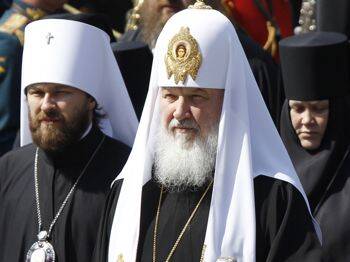Catholic and Orthodox leaders from Poland and Russia will issue a joint statement committing their churches to fostering reconciliation between the two historically feuding countries. Archbishop Henryk Muszynski, Poland's former Catholic primate, said the text could be compared to a famous 1965 declaration by Poland's Catholic bishops to their German counterparts; that document contained the words "we forgive and ask forgiveness." However, he cautioned that Polish-Russian ties had not yet "matured sufficiently" for a comparable pledge of mutual forgiveness and said it was still "very difficult to reach a common position with Russians" on historical issues. "As Poles, we speak clearly about our sufferings from two totalitarian systems—the German Nazi and the Soviet communist—but our Russian partners don't usually place them on the same level," the archbishop told the Polish Catholic news agency KAI. "As bishops, we'll be powerless in this area until historians reach a consensus," he said. "We have the same Gospel and sacraments, and we face similar challenges from the world around us—so we are close and cannot act as antagonists," he said. The archbishop helped finalize the appeal, to be signed in Warsaw on Aug. 17 by the Polish bishops' conference president, Archbishop Jozef Michalik, and Russian Orthodox Patriarch Kirill of Moscow. Polish politicians and historians have frequently criticized Russia's lack of public regret for mass deportations and executions that followed their country's Soviet army occupation after World War II and for the later decades of communist oppression. The spokesman for the Polish bishops' conference, Father Jozef Kloch, told KAI the appeal would "mark a turning-point" by reflecting on "what happened between the two nations over centuries" and by urging a "common witness" for Europe and the world.
Catholic, Orthodox Leaders in Reconciliation Effort
Show Comments (
)
Comments are automatically closed two weeks after an article's initial publication. See our comments policy for more.
The latest from america
Latin Mass, Eucharistic Revival, real presence: In every age—including our own—the church has seen a complex Eucharistic landscape.
A Homily for the Eighteenth Sunday in Ordinary Time, by Father Terrance Klein
Acceptance of changing tides was a major theme at the recent Conference of Major Superiors of Men National Assembly.
Catholic digital content creators reflect on their experiences at the Vatican's first-ever Jubilee of Digital Missionaries and Catholic Influencers.








